![]() Our Student/NSF braces package costs $3,488! Click here to learn more.
Our Student/NSF braces package costs $3,488! Click here to learn more.
Our whitening treatments start from $288! Click here to learn more.
Teeth Q Dental Surgeons
Teeth. Q Oral Maxillofacial reflects our commitment to further expand our range of dental services and to bring specialist dental care closer to home. This also allows us to meet our patients’ needs more comprehensively and holistically.
We provide a wide range of dental surgical services which include management of wisdom teeth / impacted teeth, dental implants, jaw joint problems, oral pathology, periodontal surgery, snoring (obstructive sleep apnea) and trauma.




Oral Maxillofacial Surgery is a specialty in dentistry that treats a range of disorders of the mouth, jaws and facial structures via surgery.
Our services include wisdom teeth surgery, dental implants, management of impacted teeth, oral pathology, periodontal surgery, jaw pain, jaw surgery, obstructive sleep apnea, orofacial injuries, Botox, pre-prosthetic surgery, sedation and general anesthesia.
Impacted Wisdom Tooth is a common occurrence. These third molars can be stuck in your jawbone or gums, inhibiting a proper eruption and growth of the tooth. This causes pain and traps food which in turn attracts bacteria.
When this happens, the impacted wisdom tooth can further lead to:
With such complications, we recommend a consultation with our dental surgeons for a risk vs benefits assessment in removing your impacted wisdom tooth. Our team of general dental surgeons and oral maxillofacial surgery specialists are well equipped to treat a wide range of wisdom tooth surgery cases with varying complexities.


Looking to replace a missing tooth? Dental implants are a more popular way of doing so than bridges and dentures. Think of dental implants as replacement tooth roots in the form of titanium screws or fixtures for artificial teeth and dentures.
First, the implants are inserted into the jawbones with a surgical procedure. Sufficient time is then set aside for the jawbone to heal and grow new bone cells around the implant for a firm anchorage. This process can take two to three months.
After the implant has successfully bonded the jawbone, posts are then attached to the implants, followed by fixing artificial teeth (fixed crowns/bridge, or removable denture) to the implant.
You may require a bone graft if your bone is inadequate to hold the implant. A bone graft procedure improves the bone support around the implant allowing a secure implant placement.
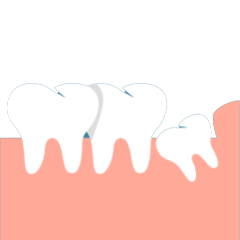

An impacted tooth remains stuck in the gums, unable to break through due to inadequate space for the tooth to emerge.
Some of the symptoms of impacted teeth include:
One possible treatment is the extraction of the impacted tooth. It is a minor surgery treated as an outpatient procedure and the patient can go home the same day after the surgery.
Another treatment is the exposure and bonding technique. The process is to first uncover the impacted tooth and then attach an orthodontic attachment to the tooth to bring it into the correct position.
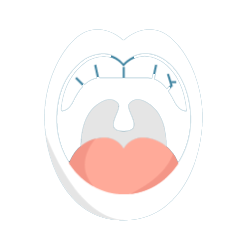

Oral Pathology refers to the diagnosis and treatment of diseases and conditions of the oral cavity.
Some of these conditions include:
Book an appointment with us to detect your conditions early to increase the effectiveness of your treatment.
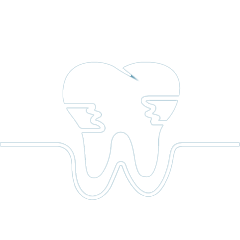

During periodontal surgery, the gums, teeth, and bones of the mouth are treated to restore the appearance and function damaged by severe gum disease.
Some symptoms of gum disease include:
Depending on your condition, there are several surgical options, such as:
As each case of gum disease is unique, we recommend you first visit our dentists to diagnose your condition. We will then create custom gum disease treatment plans tailored to your specific needs.
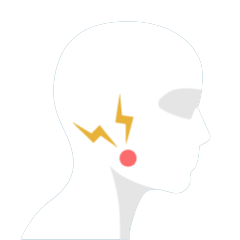

Suffering from facial pain? Some common causes of facial pain include nerve conditions (neuralgia), facial injuries, sinusitis, and dysfunction of the temporomandibular joint (TMJ).
TMJ is responsible for the opening and closing of our jaw. When these joints malfunction, you may develop tenderness in the jaw area with the possibility of pain spreading to the ear. It can also lead to headaches and neck aches. Treating TMJ disorders include medication to relieve pain and swelling and jaw exercises for reducing the stress on the jaws. Jaw surgery may be needed.
We recommend booking an appointment with us for a detailed examination to discover the cause of your jaw and facial pain. Our team of dental surgeons, orthodontist and oral maxillofacial surgeons are fully equipped to treat your jaw condition.
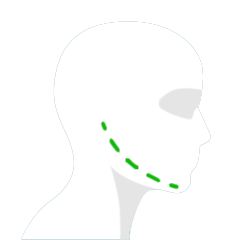

Jaw surgery is performed to correct the irregular growth and development of the jaw structure. Also known as orthognathic surgery, it aims to rectify and realign the jaw and teeth to improve their functions. Jaw deformity can extend to connected structures such as cheekbone, nose, chin, and orbits.
Some indicators that you require jaw surgery include:
Do you need jaw surgery if you have any of the above indicators? There could be a need for orthodontic treatment before or after the surgery. We recommend a thorough assessment with our oral maxillofacial surgeons to fully understand your condition.
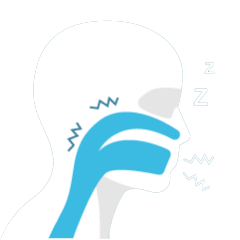

Obstructive Sleep Apnoea (OSA) is a condition caused by a blocked airway during sleep. There is insufficient air entering the lungs, which lowers the oxygen supply in your body. Your body reacts by rousing you from sleep to reopen the airway. Choking, gasping, and snoring in the middle of their sleep are common symptoms of OSA.
Here are some other symptoms of OSA:
Treatments for OSA vary depending on your condition. We recommend you visit our dental surgeons for a checkup so we can design a treatment plan for you.


Orofacial Injuries are injuries occurring around the facial and mouth regions. Some orofacial injuries include:
Orofacial injuries are more commonly seen in contact sports. Still, they can also occur in traffic accidents and falls due to impact to the mouth and jaw areas.
Treatments for orofacial injuries vary, depending on the injuries. Stitching is needed to close lacerations, and surgery is required to attach the bones for jaw fractures.
Do contact us immediately for traumatic injuries, as delays may lead to complications for treatments.
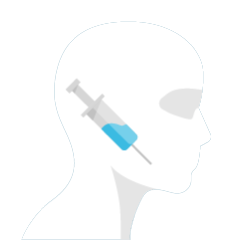

Botox is used for the treatment of teeth grinding as it relieves the tension in the jaw, which minimizes teeth clenching. It is also used for relieving pain and recovery for oral and maxillofacial surgeries. Botox is also widely used to treat temporomandibular joint disorders (TMJD).
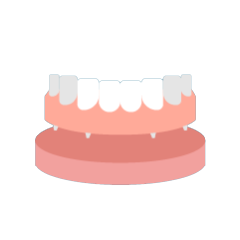

Pre-Prosthetic surgery refers to the preparation of the mouth for dental restoration with any form of oral and maxillofacial surgery.
One such procedure is the removal of the torus (exostoses), which pulls back the gums to reshape the bones, followed by replacing the gums and allowing them to heal.
Another Pre-Prosthetic surgery procedure is frenectomy. This refers to cutting the frenum, which are soft tissues attached to lips and gums. Resolving tongue ties is one such example of the frenectomy procedure.
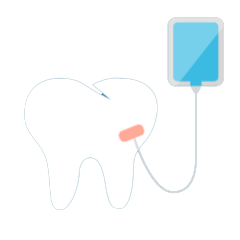

Sedation and General Anesthesia are used for various dental procedures to ensure patients remain comfortable during the surgery.
Sedation is used for minor surgeries and procedures where local anesthesia is insufficient and more profound anesthesia is not required.
Some procedures which require sedation include:
The levels of sedation range from minimal to deep, with the former allowing patients to be awake and follow instructions and the latter putting patients into a sleep state throughout the procedure.
Unlike sedation, patients under general anesthesia lose their consciousness and are unable to awaken even with painful stimuli.
General anesthesia is used for more major surgeries and for patients who may have a very high level of anxiety requiring a greater level of anesthesia as a result.






A general dental surgeon is a general practitioner treating dental diseases. An oral maxillofacial surgeon specialises in more complex oral surgery for complex mouth disorders like managing impacted teeth, dental implants and jaw surgery. You will be referred to an oral maxillofacial surgeon if your dental condition requires specialised treatment.
No, there is no age limit for OMS treatments.
No, a referral from your dentist is not compulsory. However if you do have an existing referral, do bring it along / inform our team about it as it may contain useful information pertaining to your treatment.
We strongly recommend our patients to make an appointment before heading down to our clinics to allow us to serve you better and also to reduce waiting time. You can book an appointment with us conveniently here: https://teethq.com/online-booking
Yes, we strive to offer same-day treatments depending on the nature of the treatment as much as possible.
Yes, an X-ray is usually required for a detailed diagnosis of your condition. If you have taken an X-ray recently, please email your X-ray to us at enquiry@teethq.com together with your name and contact details.
Please kindly bring your identification documents (NRIC / Passport / EP / WP / DP). Alternatively, you may self-register via our registration QR code at the counter by logging in to your SingPass app. Do also bring along the following documents, if applicable:
If you are pregnant, you can still go for dental treatment although invasive procedures are best avoided in the first 3 months and last 3 months of pregnancy. The doctor will be able to advise you.
Certain medications may pass through the placenta or into breast milk. Do let us know if you are pregnant or breastfeeding so that the doctors can advise you accordingly.
The radiation dose from dental x-rays are low compared to medical x-rays. However, we do advise you not to take any x-rays unless necessary. If you need to, there are lead aprons and shields that will protect your fetus from x-ray radiation.
According to AHA Guidelines, only those with the following require antibiotic prophylaxis before dental treatment:
A prosthetic heart valve or a heart valve repaired with prosthetic material.
A history of endocarditis.
A heart transplant with abnormal heart valve function.
Certain congenital heart defects including:
Cyanotic congenital heart disease (birth defect with oxygen levels lower than normal), that has not been fully repaired, including children who have had surgical shunts and conduits.
A congenital heart defect that has been completely repaired with prosthetic material or a device for the first six months after the repair procedure.
Repaired congenital heart disease with residual defects, such as persisting leaks or abnormal flow at or adjacent to a prosthetic patch or prosthetic device.
If you are not sure what heart condition you have, do have a check with your cardiologist and he/she will be able to advise you accordingly. For more information, please visit https://www.heart.org
You need to fast because we want to prevent vomiting under sedation which will complicate the procedure and endanger your airway. You will wake up a few minutes after the medication is stopped. However, you are advised to rest in our recovery room for at least half an hour to ensure you are fully awake before returning home.
Maxillofacial surgery varies greatly depending on the problem and procedure. Some surgeries can be done in an outpatient setting, and you can go home the same day. Other treatment plans involve multiple surgeries to achieve the desired results.
If you are taking aspirin, you do not have to stop the medication. However, if you have been advised by your doctor to stop aspirin, you should do so 5 days before the procedure and resume taking it 1 day after the procedure.
If you are taking warfarin and/or other blood thinners, you are advised to consult your physician before the surgery.
Yes. You can have surgery during menstruation or if you have a mild flu. However if you are feeling unwell, you may choose to delay your surgery at your own discretion.
During surgery, anesthesia will keep you pain-free. Should you experience any pain, please let your doctor know.
Expect some bleeding on the first day of surgery. Bleeding should be minimal by the next day. Swelling will usually start the following day. Swelling will be at its maximum on the 2nd day after surgery. To decrease swelling, you are advised to place an ice pack on your cheek on the side of surgery. Do this for the first 2 days. You can place a warm pack on the 4th day after surgery to make the swelling decrease faster.
Swelling from wisdom teeth and implant surgery will last for about a week. For other procedures, this may last slightly longer.
To decrease swelling faster, you are advised to take the anti-inflammatory medication prescribed to you. You can also place a cold pack on the site of surgery immediately after surgery and the day after.
Do not use cold packs after the third day of surgery, as this will delay recovery. Instead, place a warm pack on the surgery site. This will help the swelling to subside faster.
Swelling at the area after surgery can sometimes mimic numbness. Do not worry, but do let your doctor know on the day of your review.
Fever is defined as body temperature above 37.5 degrees Celsius or 99.5 Fahrenheit. Fever is a natural response of our body during healing. The medication prescribed for you will decrease your temperature. If the fever is persistent despite medication, do contact your doctor.
Sometimes the procedure that you undergo may involve the nose and/or sinuses, hence the nasal bleed. The bleeding is usually self-limiting. If it persists, place a gauze at the nostrils, gently press against the nostrils and wait for bleeding to stop. DO NOT blow your nose.
After extraction or surgery, you are advised to bite on a piece of gauze for 30-40 minutes. Bleeding should have stopped after this time.
If the gauze appears bright red upon removal, you are advised to place a new gauze at the same site and bite for another 30-40 minutes.
If the gauze appears partially white, pink or dull red, it probably indicates that the bleeding has stopped. You can dispose of the gauze and there will not be a need to replace the gauze.
Bleeding will stop in about 15 mins upon compression of the wound. However, you are advised to bite on the gauze for 30-40 mins.
You might still see some blood stains when you rinse your mouth and during brushing. This is normal.
During an extraction or surgery, there will be inflammation around the tissues where the procedure was. This inflammation affects the surrounding tissues and teeth, making the area more sensitive than usual. This will resolve in a few days to weeks.
Begin taking the prescribed pain medication as soon as possible after surgery. Continue taking the prescribed medication as required on the schedule for the first one to two days. After this period, the medication can be taken on an as needed basis.
Dry socket, also known as alveolar osteitis, is a painful, post-extraction condition that is experienced in some patients about 3 days after procedure. Patients at risk include smokers, females on oral contraceptives, difficult extraction etc. If you suspect you might have dry socket, do contact us and we will arrange an appointment to see you as soon as possible.
Allergic reactions to medication can manifest as rashes or hives throughout the body. Some patients experience swelling around the eyes and lips. If you experience any of the above, please contact us.
If you have breathing difficulty due to swollen tongue/throat, go to the A&E Department in any hospital immediately.
Not all procedures require antibiotics. Your doctor will advise you accordingly.
If you are taking aspirin, you do not have to stop the medication. However, if you have been advised by your doctor to stop aspirin, you should do so 5 days before the procedure and resume taking it 1 day after the procedure.
If you are taking warfarin and/or other blood thinners, you are advised to consult your physician before the surgery.
Extractions 1-2 days
Wisdom teeth/Implant surgeries 5-8 days
Jaw Surgery 30-60 days
It depends on the procedure you are undergoing. You may return to work the following day if an extraction is done.
You are advised to rest about 5 days if a surgical procedure was carried out.
You are advised to eat soft, cool foods for the first few days as hard and hot foods can cause bleeding post-surgery.
You can usually start eating normally 3-4 days after the procedure.
You can brush your teeth after normal extractions.
For surgical procedures, it is best to avoid brushing the wound and use the mouthwash as instructed.
You are advised to avoid strenuous activities for the first 3-5 days after surgery.
If you have a sinus surgery, it is best to avoid exercise for 2 weeks.
Ideally, you are advised to travel only after your review with your doctor. That would usually be about 5 days after surgery.
If you have undergone a sinus procedure, it is advised that you should avoid flying for about a week.
It is common for surgeons to use resorbable sutures (stitches) in oral surgery. These sutures will dissolve on their own within two to three days. Unless there is discomfort or bleeding, it is perfectly normal for them to come out. Follow up with your oral surgeon if there is pain or bleeding.
You are advised to put on your braces about 2-3 days after extractions and 1 week after your surgery.
Yes we do, in fact cashless and contactless payments are preferred in our clinics in view of COVID-19 to minimise and reduce touch points.
We accept a variety of cashless payments, including PayNow, DBS PayLah, OCBC Pay Anyone, UOB Mighty, Visa, Mastercard, Amex, Apple Pay, Google Pay, GrabPay, FavePay, FavePay Later, ShopeePay, Samsung Pay, WeChat Pay, Huawei Pay, and AliPay.
The clinics have also gone paperless as default and our patients may receive invoices for their dental treatments
Yes, our clinics are Medisave-accredited and you may utilise your Medisave to pay for dental treatments which have been approved for Medisave use by the Ministry of Health (MOH). Our doctors and staff will be able to advise you about the Medisave claimable amount in line with the Ministry of Health’s prevailing rules for Medisave use (https://www.moh.gov.sg/cost-financing/healthcare-schemes-subsidies/medisave)
Our clinics are CHAS-accredited and you may receive your CHAS dental subsidies for selected dental services covered under CHAS. The amount of CHAS dental subsidies which are able to be received are in accordance to the claim limits and subsidy amount for each type of service according to the different CHAS tiers. You may refer to the “CHAS Dental Subsidy Schedule” under the Dental Services section of the CHAS website here for more information.conveniently via email.
You may be glad to know that the CHAS dental subsidies accorded to Pioneer Generation (PG) cardholders and Merdeka Generation (MG) cardholders are higher than those for CHAS Blue/Orange cardholders. You may refer to the “CHAS Dental Subsidy Schedule” under the Dental Services section of the CHAS website here for more information.
Yes certain OMS treatments are covered by insurance. Our clinics are accredited panel dental providers with various insurance partners such as Alliance Medinet, DA Adept, MHC, Inova Care, IHP and AIA. You may check with your company / insurance provider for your specific coverage details. We are also looking to add more insurance partners in the future.